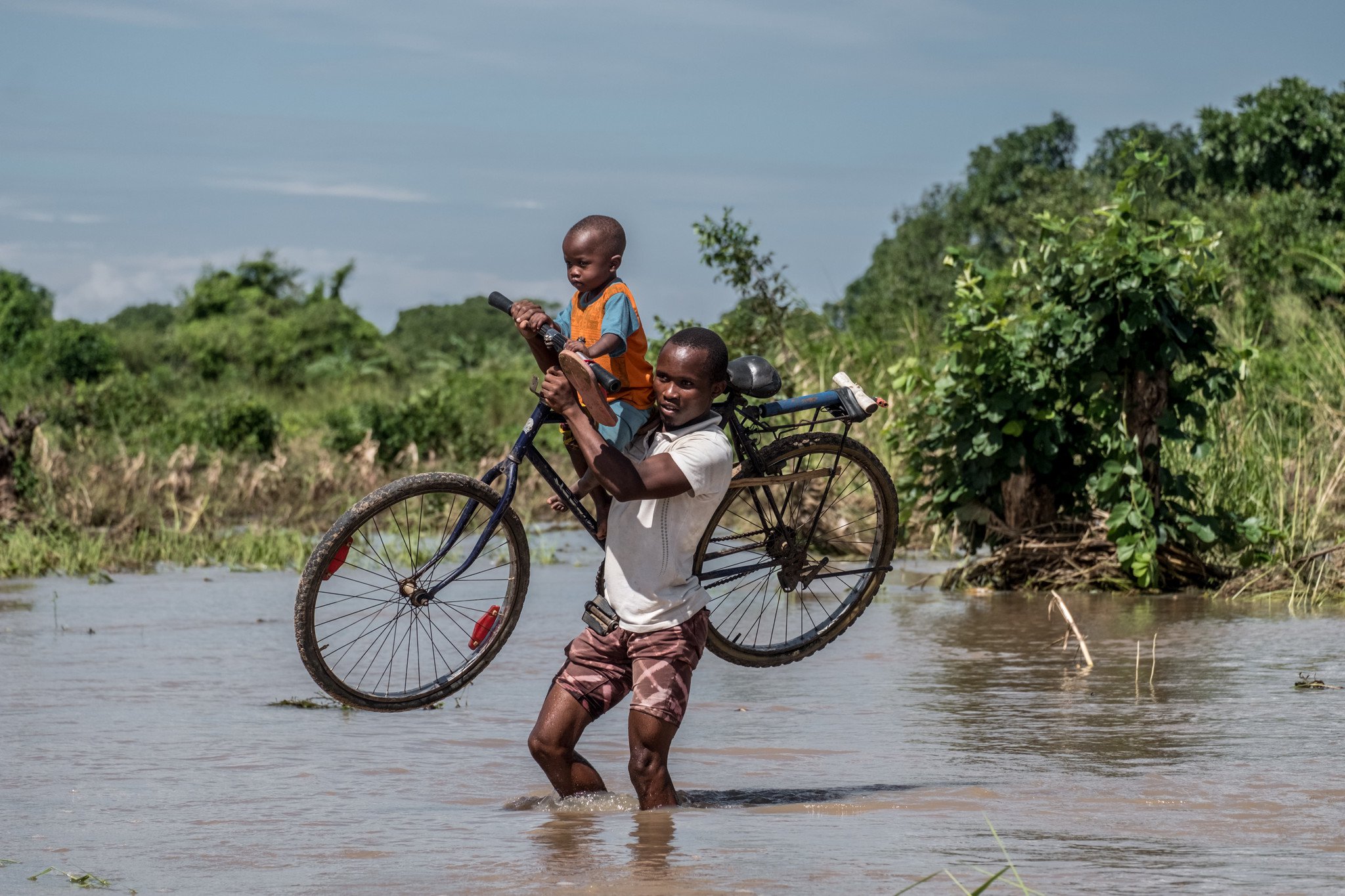In the second major storm to hit Mozambique in the last two months, farmers report lost crops and hunger. Oxfam is expanding its cyclone response to help them.
When Cyclone Kenneth hit northern Mozambique, Mayasa and her family were in their home–and it was a terrifying experience.
“The wind was so strong…and all of the zinc roofs [in the village] flew off at the same time. Then the rain came and the walls collapsed too,” she says. “We were very afraid.”
Mayasa says her young daughter cried the entire time. They are now living in a thatch-roofed shelter in the ruins of their home. “All our clothes are under the mud,” she says.
Mayasa’s family and many others who survived the second strong cyclone to hit Mozambique within four weeks are now struggling to find ways to rebuild their homes--and rebuild their lives.
The storm hit the northern Cabo Delgado province and the port city Pemba. Heavy winds, torrential rains, and a storm surge flooded low-lying areas and affected 160,000 people. More than 40 people died, and 35,000 homes were destroyed. Many of the families who rely on agriculture for their livelihood lost all their crops, and are now without shelter, food, and clean water.

Racing to respond
Oxfam and a humanitarian assistance consortium in Mozambique (including CARE and Save the Children) are racing to respond to this second massive disaster to hit the country. Staff from these organizations and local organizations have been assessing the needs of families affected by the storm in the area near the town of Metuje and are preparing to distribute mosquito nets, food, and hygiene kits.

“This was the very first time that the province of Cabo Delgado has experienced such a disaster,” says Carlos Dias, director of ADEL, one of Oxfam’s partners in Mozambique. This, in combination with the fact that humanitarian organizations are already struggling to respond to communities affected by Cyclone Idai in the central coast near Beira, makes it especially difficult to find the extra expertise and resources to help the communities affected by Cyclone Kenneth.

Oxfam has already provided assistance to nearly 100,000 people affected by Cyclone Idai, and is urgently seeking funds to reach another 400,000 people and respond to a cholera outbreak in that area. The organization is now also seeking resources to mount a response to Cyclone Kenneth.
